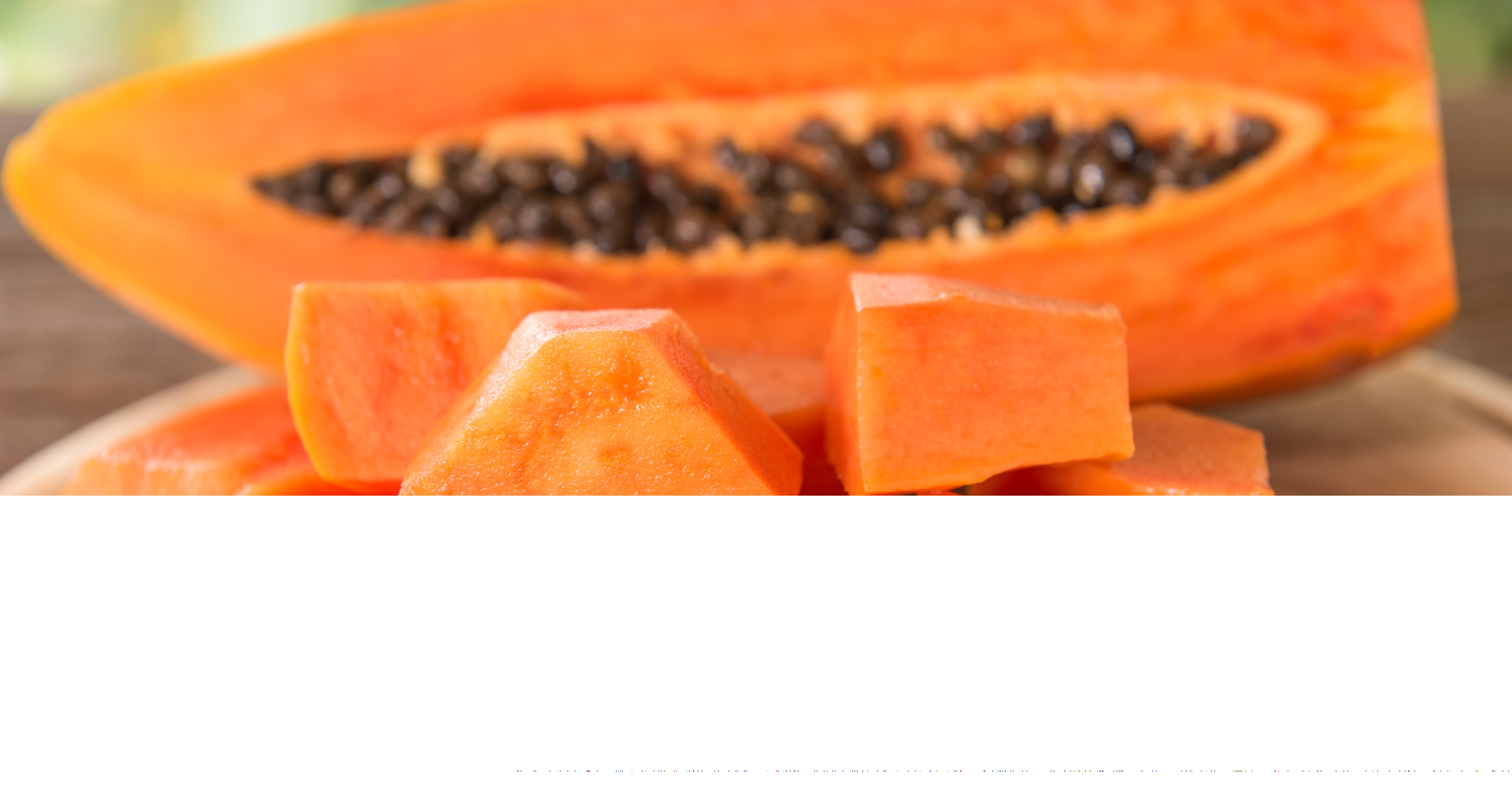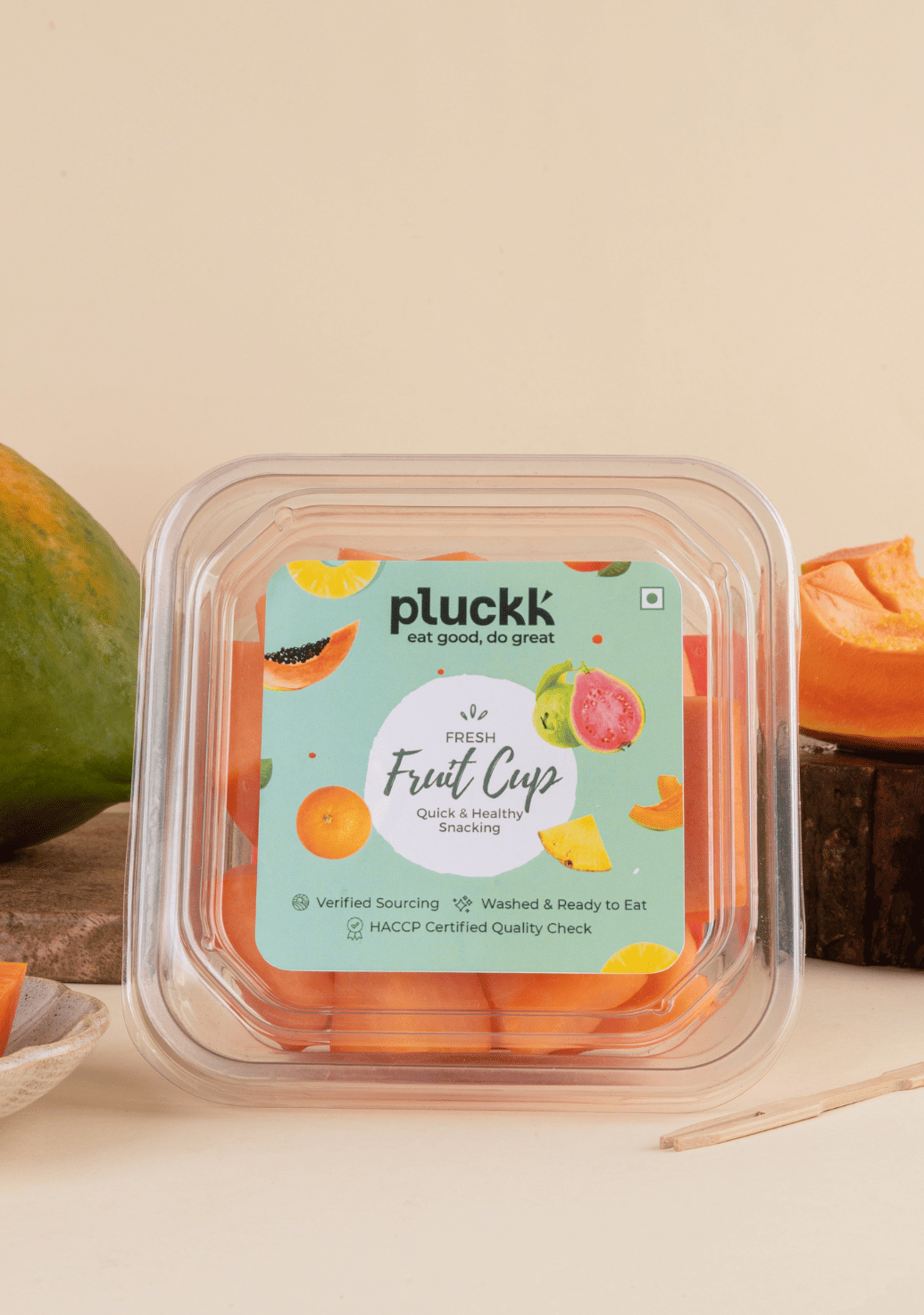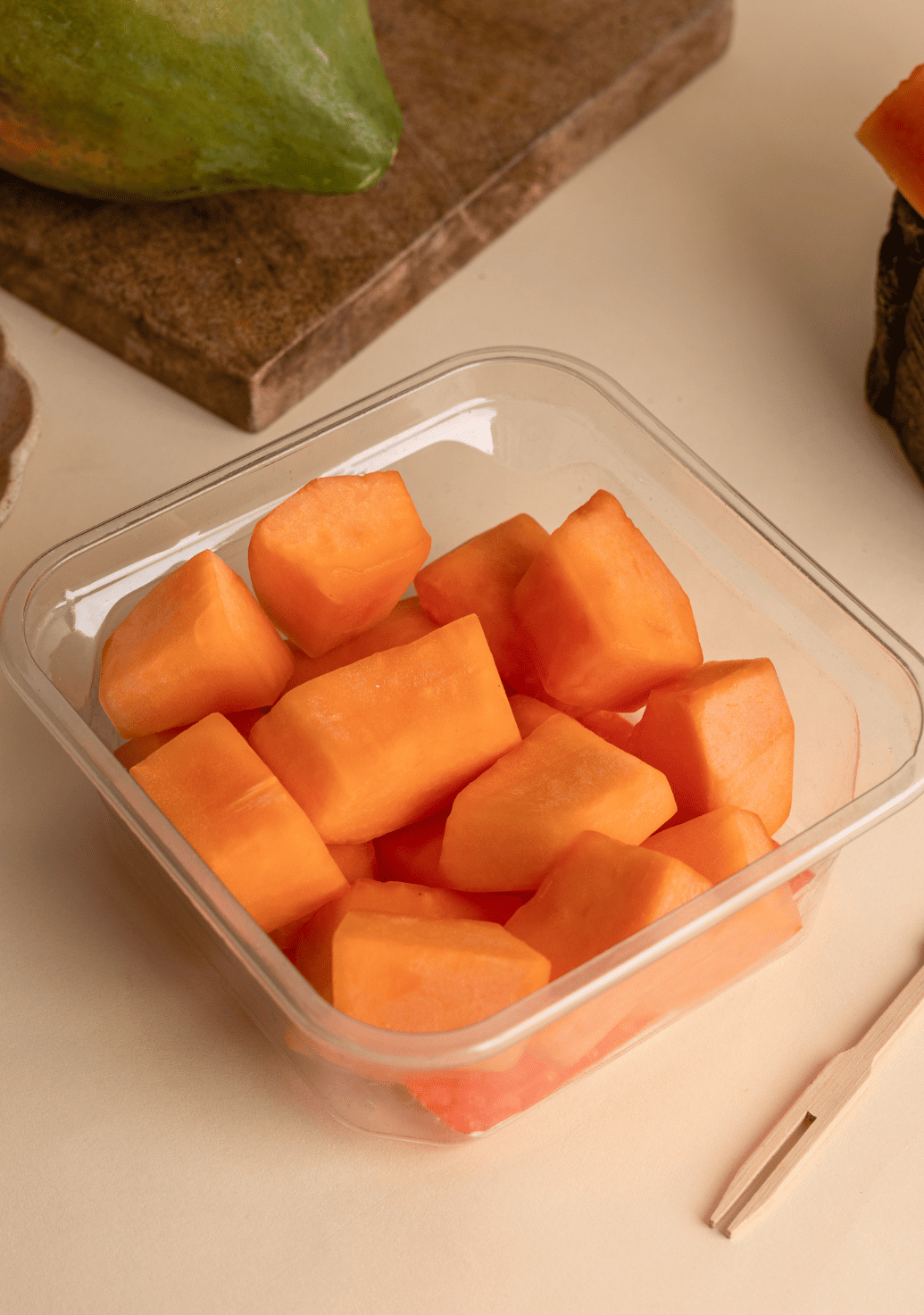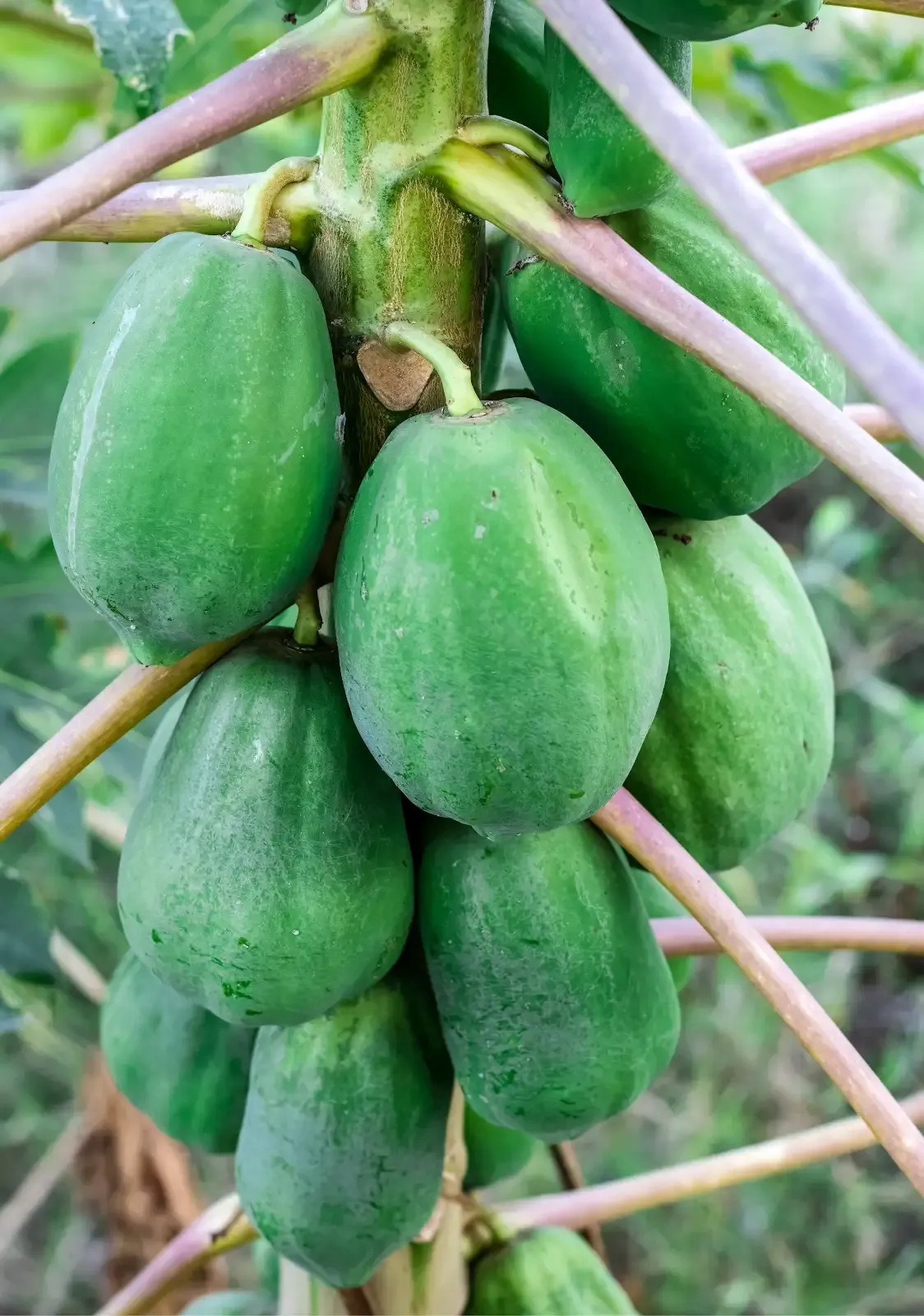
For a better and faster shopping experience, download app
Unkown

15 Powerful Health Benefits of Papaya (Papita) – Backed by Science
Papaya (Carica papaya), known as papita in Hindi, is one of the most loved tropical fruits in India—not only for its sweet taste but also for its powerful health properties. This golden-orange fruit is packed with enzymes, vitamins, and antioxidants that can transform your health from the inside out.
Here are 15 detailed, science-backed benefits of papaya that explain exactly why this fruit deserves a regular spot in your diet.
1. Papaya Improves Digestion and Prevents Constipation
How Papain Improves Digestion
Papaya contains papain, a proteolytic enzyme that helps break down protein into amino acids, making it easier for the body to absorb nutrients. This is particularly helpful after eating heavy Indian meals with dal, paneer, or meat, which can be harder to digest.
Fiber and Water Content for Gut Health
Along with papain, papaya has a high fiber content (1.7g per 100g) and 88% water, which softens stools and prevents constipation. Fiber also feeds healthy gut bacteria, supporting a balanced microbiome.
Research Evidence
A 2013 Neuro Endocrinology Letters study involving 126 adults found that a papaya-based preparation reduced bloating, constipation, and IBS symptoms in just 40 days. Tip: Eat papaya in the morning on an empty stomach for maximum digestive benefit.
2. Boosts Immunity Naturally
Rich in Vitamin C
Papaya contains around 60 mg of vitamin C per 100g, exceeding the Indian adult RDA of 40 mg/day. Vitamin C is essential for white blood cell production, your body’s primary defense against infections.
Synergy with Other Nutrients
Papaya also provides folate, vitamin A, and small amounts of vitamin E, which collectively strengthen immune response.
Why It Matters
A strong immune system helps you fight off seasonal illnesses like flu and colds faster. It also improves recovery after infections or injuries. Tip: Pair papaya with other vitamin C-rich fruits like guava or kiwi for an even bigger immune boost.
3. Gives Skin a Natural Glow
Antioxidant Protection
Papaya’s vitamin C, vitamin A, lycopene, and beta-carotene fight oxidative stress—one of the leading causes of wrinkles, fine lines, and pigmentation.
Collagen Support
Vitamin C helps produce collagen, the protein that keeps skin firm.
Study Insight
A 2012 British Journal of Nutrition study found that diets rich in carotenoids improved skin tone and radiance within 6 weeks. Tip: Eat papaya regularly and try a DIY face mask with mashed papaya for a natural exfoliation.
4. Supports Heart Health
Potassium for Blood Pressure
Papaya is a good source of potassium, which helps balance sodium levels, relax blood vessels, and lower blood pressure.
Antioxidants for Cholesterol
Lycopene and vitamin C prevent LDL cholesterol oxidation, reducing plaque formation in arteries.
Why It’s Important
A potassium-rich diet is associated with a 20% lower risk of stroke. Tip: Combine papaya with a handful of nuts for a heart-healthy snack.
5. Helps in Weight Management
Low-Calorie, High-Fiber Snack
Papaya offers only ~43 kcal per 100g yet keeps you full due to its fiber content.
Hydration Benefit
Its water content helps curb cravings and maintain hydration, essential for healthy metabolism.
Practical Use
Eating papaya before meals may help you eat fewer calories overall. Tip: Make a papaya-lime salad as a refreshing, weight-friendly snack.
6. Regulates Blood Sugar Levels
Low Glycemic Index
With a GI of ~60, papaya releases sugar into the bloodstream slowly, avoiding sharp spikes.
Antioxidant Support
Papaya’s antioxidants reduce oxidative stress and support insulin sensitivity.
Who Benefits
This makes papaya safe for most diabetics when eaten in moderation. Tip: Eat ripe papaya instead of processed desserts for a healthier sweet fix.
7. Reduces Inflammation and Eases Joint Pain
Bioactive Compounds
Papaya is loaded with lycopene, flavonoids, and polyphenols that neutralize inflammation-causing molecules.
Arthritis Support
These compounds may help reduce joint stiffness and pain in people with arthritis.
Recovery Aid
Athletes and gym-goers can benefit from its anti-inflammatory effects for muscle recovery. Tip: Blend papaya into a post-workout smoothie for a recovery boost.
8. Improves Eye Health
Vitamin A and Carotenoids
Papaya contains lutein, zeaxanthin, and beta-carotene, which protect the retina and lens.
Blue Light Protection
Lutein and zeaxanthin filter harmful blue light, reducing eye strain from screens.
Long-Term Benefits
High carotenoid intake can reduce AMD risk by up to 26%. Tip: Include papaya in your breakfast if you work long hours on screens.
9. Speeds Up Wound Healing
Collagen Production
High vitamin C levels accelerate collagen synthesis, which repairs skin and tissues.
Papain for Debridement
Papain can gently remove dead tissue, speeding up healing in minor wounds.
Traditional Use
Mashed papaya pulp is used in tropical cultures as a natural wound dressing. Tip: For cuts, focus on eating papaya rather than topical application unless advised by a doctor.
10. Strengthens Hair and Scalp Health
Sebum Regulation
Vitamin A supports the production of scalp oils that keep hair hydrated.
Hair Strength
Vitamin C strengthens hair strands through collagen formation.
Extra Benefit
Antioxidants protect hair follicles from pollution and UV damage. Tip: Add papaya to your diet instead of relying only on topical hair products.
11. May Lower Cancer Risk
Antioxidant Defense
Papaya’s beta-carotene, lycopene, and flavonoids protect against DNA damage.
Early Research
Lab studies show papaya leaf extract may inhibit certain cancer cell growth.
Note
These findings are preliminary; papaya should be part of an overall healthy diet, not a sole treatment.
12. Supports Kidney Function
Potassium Balance
Potassium helps regulate fluid levels and reduces strain on kidneys.
Oxidative Stress Protection
Papaya’s antioxidants help prevent oxidative damage in kidney tissues.
Who Should Eat It
Beneficial for people with high blood pressure, a major cause of kidney disease. Tip: Always consult a doctor if you have chronic kidney issues before adding potassium-rich foods.
13. Eases Menstrual Pain
Papain’s Role
Papain helps regulate menstrual flow and relax uterine muscles.
Traditional Use
In Indian households, ripe papaya is often recommended before periods to reduce cramps.
Caution
Unripe papaya should be avoided during pregnancy due to latex content.
14. Strengthens Bones
Mineral Support
Papaya contains calcium, magnesium, potassium, and folate for bone density.
Acid Neutralization
Potassium reduces calcium loss from bones by balancing pH.
Life Stage Relevance
Especially beneficial for women post-40, who face higher osteoporosis risk.
15. Detoxifies and Cleanses the Body
Papaya Seeds for Liver Health
Seeds contain benzyl isothiocyanate, which supports liver detoxification.
Digestive Cleansing
Fiber helps remove waste from the digestive tract.
Extra Benefit
Some studies suggest anti-parasitic properties in papaya seeds.
FAQs About Papaya
Is it safe to eat papaya daily?
Yes, 1–2 cups of ripe papaya daily is safe for most people.
Can diabetics eat papaya?
Yes, in moderation. Its low GI makes it suitable for most diabetics.
Which is better—ripe or unripe papaya?
Ripe papaya is ideal for general health; unripe papaya should be avoided during pregnancy.
What’s the best time to eat papaya?
Morning on an empty stomach for maximum digestive benefits.
Does papaya help with constipation?
Yes, its fiber and papain enzyme naturally relieve constipation.
Made fresh with real ingredients | 🍽️ Serves 2 | ⏰ Ready in 10 Minutes
Ready to Cook with all Ingredients
























